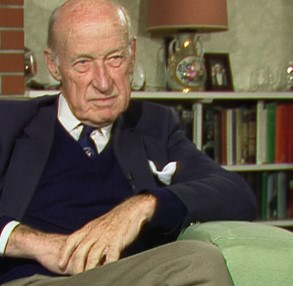A Brief Lament for Colour
0If he knew that more than a few people nowadays take their news from individuals posting on social media feeds, the only sports journalist to be admitted into the NZ Sports Hall of Fame, Sir Terence Power ‘TP’ McLean, would no doubt curse them from his grave.
Cranky old TP would no doubt also squirm at the terminology emanating from this generation of Rugby Union, the sport he was most famous for writing about. Words like ‘Percentages’, ‘Kick returns’, ‘Ball retention’ and ‘Clean outs’ would be anathema to someone like him.
Then there’s the organisation, the money, and the endless analysis. Sports in the professional era contain roughly more science than an entire NASA space mission, develop new rules, concepts and competitions in about equal measure, and support staff just about outnumber the players. Professional sport is a business; it’s not really anything else.
And big business is a serious, stark affair. It’s traditionally a lot more analytical than creative. So it seems logical the reportage of pro sport would somewhat mirror that concept. But would it be a fireable offence for a bit of imaginative prose to sometimes find its way into the lines of a thing like a match report?
The counter argument to this could be: No-one wants to read a detailed description of something they’ve just seen- no matter how engaging or imaginative it might be. It’s only the after-match analysis and opinion that count. Well, yes, maybe, but no.
There’s not much more of a shame in the world of sports writing than a talented journalist remaining in their shell, or being forced to write like a business analyst.
How good if we could read passages from matches that were written like this (from December 1972, All Blacks vs Scotland at Murrayfield):
“…finally, how, at about halfway, McHarg, by the touchline, tossed infield a pass which Going, reaching up, cut off and brought down to his right shoulder as he began to leg it for the goal 50 yards away. From the hypotenuse, far across the field, Scottish defenders began to stream and the crowd, in agony, set up a scream, But there was as much chance of any human agency stopping Super Sid as of hitching a ride to the moon. Karam could not convert the try. Joe, this day, couldn’t kick for sour apples. He didn’t need to. Even in defeat, there was not, in Edinburgh, this night, a scene or sound of sourness.”
Or this, All Blacks versus Wales, ‘The Murdoch match’ 1972: “The audience had become a mob. It howled for blood. Bennett came up for the kick, 40 yards, if it was an inch. If the All Blacks did not pray then, Christianity has ceased to exist as an improving force. Bennett kicked. There sounded a howl of glee. There sounded a groan of despair. The ball, sliced, spurted past the right-hand upright. ‘Johnnie’ Johnson blew no-side. Wales, the unconquerable, had lost. Not for years, perhaps not forever, would the Welsh forget they had been beaten by ‘the worst team ever’. In utter silence, they bore their miseries from the field.”
Who wrote the two bits above? None other than old TP McLean himself. Yes, it’s from a bygone era, but it stands up as great writing. It’s a master of their craft at work. That has to resonate with people at any time, surely- past, present or future.
A splash of colour now and again. That would be good.
@pm_spotter

